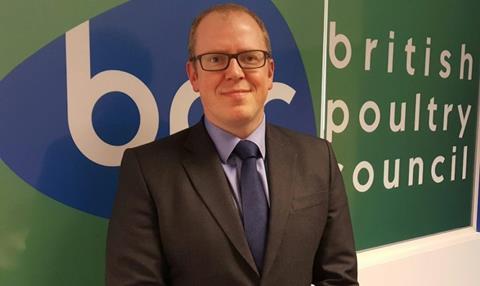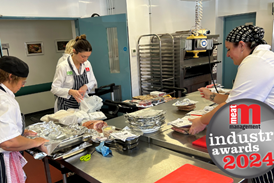The British Poultry Council (BPC) have continued to voice concern about “unbalanced” regulations on moving poultry between the UK, EU and NI, calling for “mutually beneficial” sanitary and phytosanitary (SPS) controls.

In a recent statement BPC said that since Brexit legislation came into effect on 1st January 2021, British businesses have been subjected to “a number of unreciprocated requirements”, including international SPS controls.
The Council added that British poultry meat has been hit by “superfluous new administration” that cost an additional £60 million in 2021, including inspections at border control posts and burdensome customs procedures. Despite Britain’s food producers continuing to try to mitigate barriers and minimise extra cost, BPC claimed that systemic challenges are not getting any easier and are not suitable for the just-in-time nature of the supply chains.
“Trade with the EU is imbalanced”
BPC chief executive Richard Griffiths said: “Government have continually expressed that the Trade and Co-operation Agreement (TCA) allows British businesses to ‘trade freely’ with the EU, but this is not reflective in the real-world impact of third country trading. From vet shortages, to mile-long-queues at Dover to trading under bird flu, it is clear the current system is not designed for third countries to ‘trade freely’ with the EU."
“Businesses have tried to face into these burdens but trade with the EU is imbalanced. To thrive, not just survive, recognition of mutually beneficial standards and practices with our most vital trading partner must be agreed upon to ensure fair and competitive trade and to correct the problems our member businesses are encountering on a daily basis,” he added.
BPC is calling for a SPS agreement that addresses the following “to ensure British poultry producers can ‘trade freely’ with the EU under Brexit”:
- A consistent, mutual approach to certification checks (reduction or elimination) to maintain fair and competitive trade
- Secure flexible border arrangements in light of a shortage of Official Veterinarians (OVs) to ensure minimal disruption to just-in-time supply chains
- Securing rules and correcting terminology for trading with the EU under bird flu.
Griffiths concluded: “We have an opportunity to do what is best for our trade systems, yet our government is continually putting barriers in our way…We need to invest in solutions now to avoid further jeopardy to British businesses come July.”
This story was originally published on a previous version of the Meat Management website and so there may be some missing images and formatting issues.





